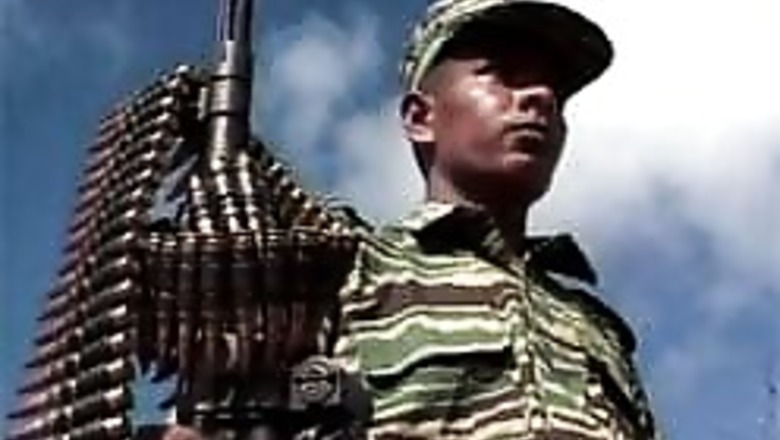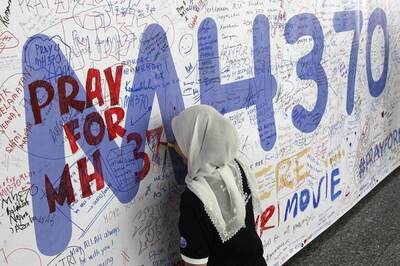
views
Colombo: Sri Lanka's Tamil Tiger rebels celebrated their suicide bomber squads on the 19th anniversary of their first attack on Wednesday, but in the capital Colombo troops nervously scanned streets fearing new blasts.
With a 2002 ceasefire increasingly in tatters and more than 700 people dead so far this year, many fear the rebels may unleash more Black Tiger suicide bombers against civilian, military and economic targets.
"Our Black Tigers have stood as pillars of strength and force," said the Tiger-linked Jaffna University Students Union in a statement. "Every time they walk into the battlefield, they scatter like cotton and mingle and join the air for the love and passion for their goal without considering death."
During two decades of civil war for a separate homeland for minority Tamils in the north and east, the Liberation Tigers of Tamil Eelam (LTTE) have used suicide fighters both on the battlefield and in the capital.
"Colombo is as dangerous as the north and east now," one air force infantryman told Reuters in the Sinhalese language, gripping his AK47 assault rifle at a checkpoint in the capital as his colleagues searched vehicles for explosives.
The military said a claymore fragmentation mine killed one soldier in the northern town of Vavuniya on Wednesday, but that it was clearly not a Black Tiger attack.
The first suicide attack took place 19 years ago on July 5, 1987, when rebel Captain Miller drove a truck packed with explosives into an army camp.
The Tigers said they would parade his picture on a motorcade through their northern heartland.
But they said commemorations of the 273 dead Black Tigers would be low key, unlike in some previous years when troops of suicide bombers in dark tiger-striped fatigues have openly marched, faces usually obscured with cloth.
With two suicide blasts in or near the capital this year, killing Sri Lanka's third most senior general and seriously wounding the army commander, and the sinking of three naval patrol boats in suicide explosions, many worry that the wartime bombings may be about to resume.
"Sometimes we are worried to send our children to school because of the threat," said 34-year-old Colombo IT technician Chinthaka Balasooriya. "We experienced a peaceful environment because of the ceasefire but that has already collapsed."
The LTTE deny carrying out recent blasts. Few believe them. Black Tigers have also been blamed for a 1996 attack on the central bank that killed more than 100, an assault on the airport that destroyed half the national airline fleet and blasts that killed one Sri Lankan president and cost another her eye.
They are also blamed for the killing of former Indian Prime Minister Rajiv Gandhi in 1991 after a failed Indian intervention in Sri Lanka. The LTTE now say they regret the killing, but have not admitted carrying it out.
The Tigers say they began using suicide bombing in order to compensate for the numerical superiority of Sri Lanka's military. But some in the Tamil-dominated north would like to see an end to the killing.
"Though I am proud of them, I would like to see these suicide attacks stop," said Victor Aseerwaltham, 24, who lives on the army-held Jaffna peninsula. "The violence against us by the Sinhalese laid the foundation and the need to form the Black Tigers and they have given us inner moral strength. But I feel very sad."

















Comments
0 comment